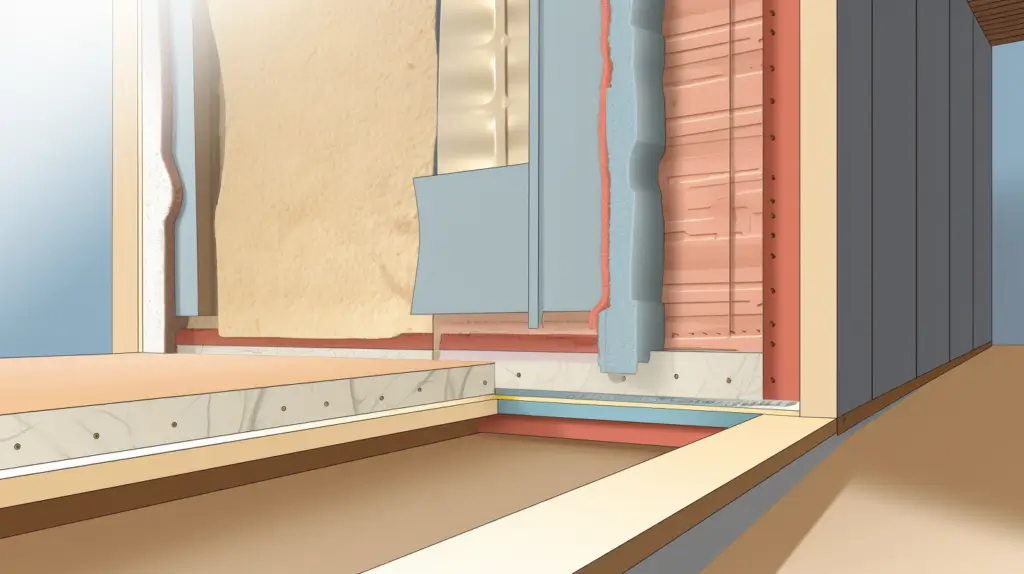In open office layouts, shared workspaces, and high-traffic commercial areas, excess noise can lead to distractions, reduced productivity, and even stress. For companies, poor acoustics can impact client interactions and employee satisfaction, while in industries like healthcare, excess noise can disrupt critical operations.
By enhancing acoustics with drywall, contractors can improve both the comfort and functionality of a building–making it a must-have for contractors working on large commercial construction projects.
Types of Soundproof Drywall
There are several soundproof construction materials available to reduce noise transmission between rooms or from external sources. One popular option is acoustic insulation drywall, which incorporates materials like gypsum board with sound-dampening cores, often layered with other insulation products to block sound.
Another widely-used solution is multi-layered drywall, which can significantly reduce sound transfer by adding mass to the walls. These drywall systems are often enhanced with sound-absorbing materials such as fiberglass, foam, or resilient channels that isolate vibrations. This combination helps to minimize both airborne and impact noise in commercial settings, making it ideal for applications like office acoustics or hotel rooms.
Benefits for Office Buildings
Employees in soundproofed spaces tend to be more focused and less distracted by outside noise, which is particularly beneficial in open-plan offices where conversations, phone calls, and other noises are constant.
This will also create a more professional environment, reducing noise pollution in conference rooms and improving privacy for sensitive conversations. Whether it’s a small office renovation or a large-scale commercial project, incorporating soundproof drywall into the design ensures a higher-quality workspace.
Installation Techniques for Large Commercial Buildings
The effectiveness of noise reduction drywall installation is not just about the materials but also how they are installed. For optimal results, contractors should follow best practices such as using double-layered drywall systems, sealing gaps around outlets and vents, and employing specialized resilient channels to prevent sound vibrations from transferring through the structure.
By combining the right materials with effective installation techniques, contractors can create commercial spaces that meet strict acoustic performance standards. This is particularly important for high-end commercial projects where acoustic quality is a selling point.
Cost vs. Benefit Analysis
While soundproof drywall typically comes with a higher upfront cost compared to standard materials, the ROI is evident in improved employee productivity, tenant satisfaction, and overall building quality. The long-term benefits, including reduced maintenance and higher property values, often outweigh the initial investment, making it a smart choice for developers.
Create The Ultimate Shared Workspace With Curtis Partition
The use of soundproof drywall solutions in commercial construction is essential for creating environments that foster productivity and comfort. By investing in acoustic drywall, contractors can offer their clients spaces that are not only functional but also highly effective at controlling noise. As commercial construction projects grow in scale and complexity, soundproofing will continue to be a critical component in achieving top-tier building acoustics.
Contact Curtis Partition today for a consultation on your project.

